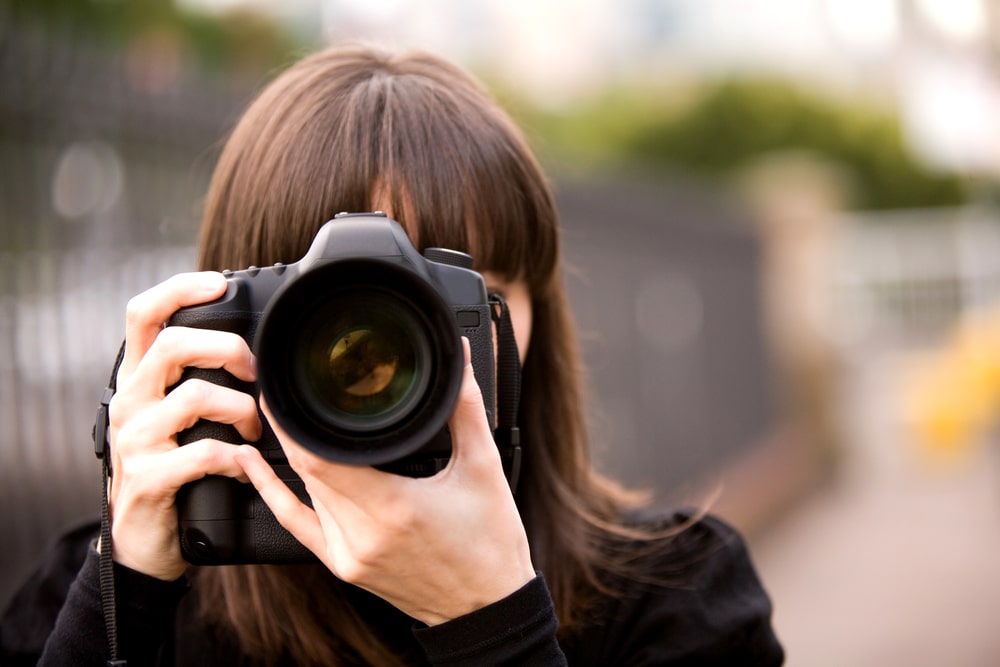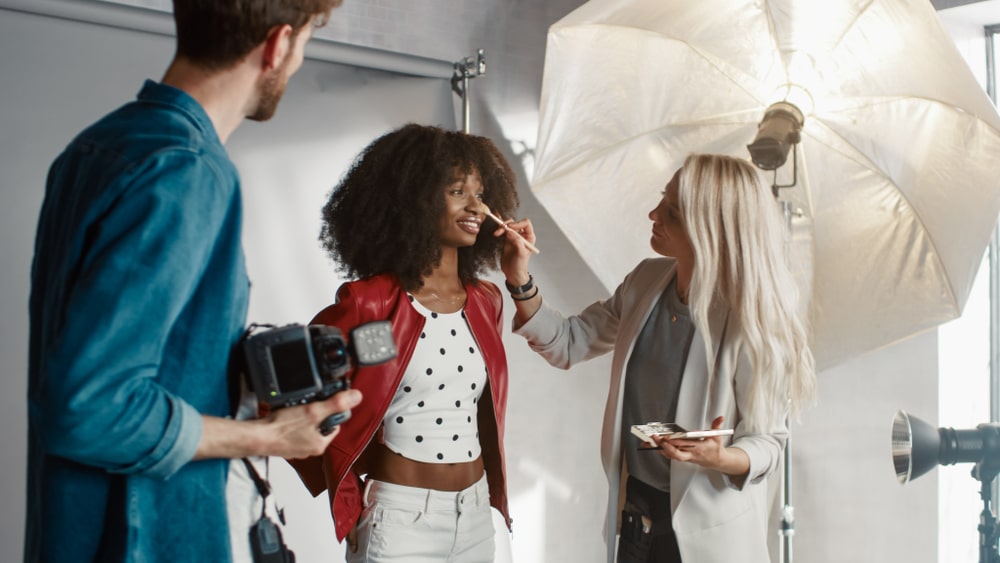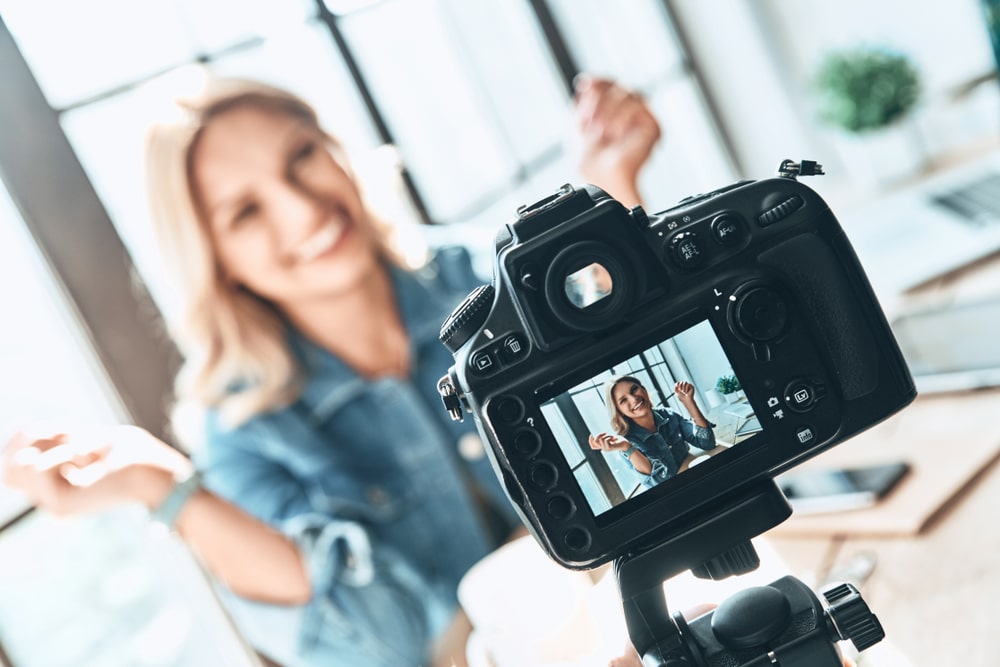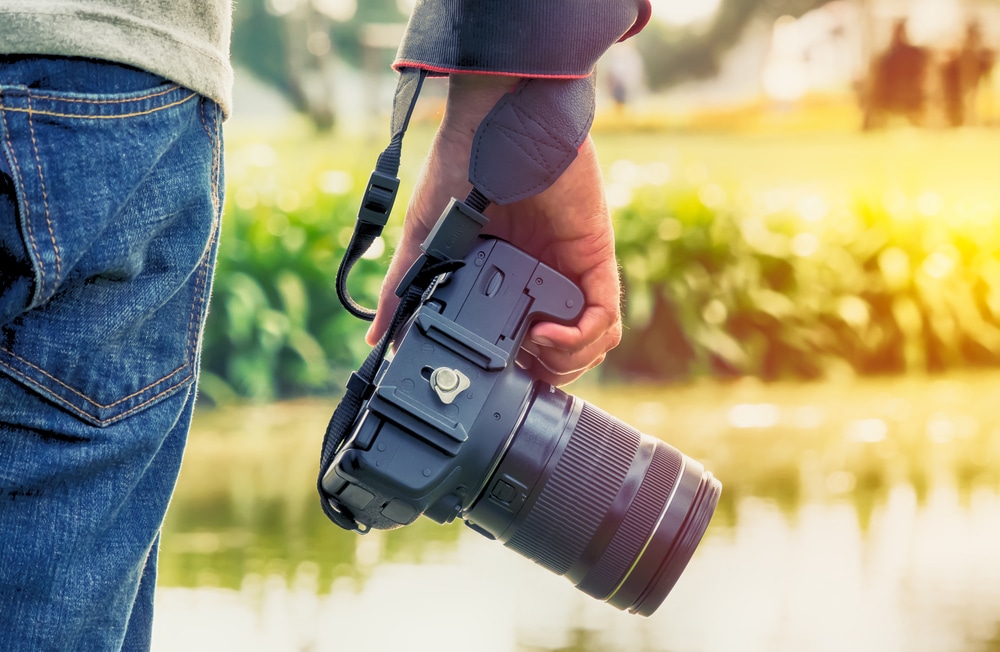Jasmine Birtles
Your money-making expert. Financial journalist, TV and radio personality.

Selling photos of yourself can be a great way to make extra money. With mobile phone cameras getting better and better every year, it is no surprise we take more photographs of ourselves than ever. In particular, ‘selfies’, which are self-portrait style photographs taken with a mobile phone, are the most popular mode of taking photographs.
As of January 2021, there were 53 million active social media accounts within the UK. This is equal to 77.9 per cent of the population having a social media account. There is no surprise, then, that Britons take their own picture a whopping 1.2 billion times a year in total.
We all take pictures of ourselves, whether it is to share them on social media or send to friends and family. But what if you could make money from the photos you take of yourself? It is entirely legal, and a legitimate way to make some extra cash.

Stock images are those which are supplied for specific uses and are often licenced. They are made available to those who pay a fee, which goes directly to the artist who produced the images. The host website, which displays the photos, will also take a small cut of the fee.
Most often, stock images are produced for editorial use, appearing in newspapers, magazines, online and even on the television. There are plenty of websites available for you to upload your photos onto in order to make some extra cash.
Perhaps one of the most well-known stock image providers, Shutterstock have paid out over $1 billion to their contributors in the past 15 years. As a shutter stock contributor, you will receive between 15 and 40 per cent of the total price Shutterstock receives when your content is downloaded by other users. Your commission is based on the number of downloads your photos receive.
Owned by Getty Images, iStock is used by 1.5 million users in 200 countries globally. You can apply to be an iStock contributor in three easy steps. Once completed, you will be able to start earning commission.
Adobe is a name known by millions of internet users. You earn 33% of all royalties for every photo you sell. The more photos you upload, the more earning potential you have on the website.
Here are a few more of the best stock image websites to consider:

Modelling is one of the most obvious ways to make money from photos of yourself. It may seem a silly idea, but you don’t have to look like Kate Moss to try modelling. In fact, many modelling agencies want to find people of all different shapes and sizes to model for them.
You may not have considered modelling previously, but you may be just what a certain company or agency are looking for. There are also a huge number of different types of modelling, from catalogue to advert modelling. There are also many agencies in search of hand and foot models, and even hair models!
We have previously written an article all about modelling and how you can get yourself scouted. Read it here.

It may seem farfetched, but if you have ever fancied getting into acting, or becoming an extra for film and television, getting some headshots taken is the place to start.
A headshot is an actor’s brand and can help them market themselves in the entertainment industry. It is key to helping actors secure auditions. Plus, having a visual image of yourself can help others remember you for future work. Although you will not make money from the photo itself, it will help you make money down the line.
We understand acting may not be for everyone. But even if you don’t fancy the spotlight yourself, you can make money as an extra. Whilst filming, TV shows and movies are always on the lookout for people to help out. Plus, the pay can be pretty good for an easy and fun days’ work. Plus, it can be a great experience and a chance to meet new people!
Rates of pay vary across the UK, but there are three main agreements used in and around London when it comes to paying extras. It is always a good idea to check with the production team beforehand, but here are the three main pay agreements:
The rate is £92.69 for a 9 hour work period including a meal break, between the hours of 7am and 10pm.
£86.40 for a continuous 9 hour period, including up to 8 hours of work and a meal break of at least an hour. Or, a 7 hour continuous period without a meal break.
£79.89. Up to 10 hours, during which up to 8 hours of work may take place. Not required to give any individual characterisation or dialogue.
As mentioned, guidelines vary across the UK and between production companies, but it gives you a rough guideline. Plus, there are many opportunities to earn extra money on set, such as working night-time hours or bagging yourself a small amount of dialogue. Plus, if you have a special skill, such as horse riding, dancing or being able to drive, you may be paid more.
We have previously written a thorough and helpful guide all about how to become a film and TV extra. You can read it here.

It may seem like a long shot, but becoming an online influencer can make you plenty of money. An influencer is someone who has a certain level of influence online. They may have a large number of ‘followers’, people who subscribe to them, engage with their content or even look up to them.
Brands and companies use influencers to help them promote or advertise their products and services to their audiences. Some influencers may be paid a set fee for doing a post, whereas others may be paid commission for every sale made as a result of their promotion.
Although it may seem difficult to become an influencer, a new brand of ‘micro-influencers’ is on the rise. A micro-influencer is someone with 3,000 followers or more. This means you don’t have to have millions of followers to start earning money from photographs of yourself.
According to Tribe, micro-influencers can earn anywhere from £50 to £250 per sponsored post. A photograph of yourself holding a product or a short video discussing the benefits of a product could earn you a nice little income.
But how can you grow your social media influence? Pick a niche, start posting, and begin to engage with other accounts similar to your own. It is all about networking and creating new contacts online. Once you start to gain a small following, you can reach out to brands and companies and ask them about a working relationship. You will be surprised at how many brands are willing to work with smaller influencers, particularly small and local brands.

Of course, to make decent money it is imperative the photographs taken are of the best quality possible. Luckily, you do not have to be a professional photographer to begin selling your photos, and many mobile phone cameras take beautiful, high quality images.
There are also plenty of helpful guides and tips online to help you take beautiful photos on your phone. The School of Photography suggests a few ways to ensure you get the best photos possible via your smartphone. These tips include taking multiple shots, use good lighting, and natural lighting where possible, and using editing tools to help transform the photos your capture.
It is also a good idea to have a play around with the camera you are using, whether it be your mobile phone or a digital camera. This will help you understand how the camera works, any settings you can change and different modes to help you capture the perfect shot.
So, why not try your hand at photography and make money selling photos of yourself? You may be surprised at how much extra cash you can make!
When it comes to billing, you might want to use an invoice software. For example, Zintego.com invoice software streamlines the billing process for businesses by automating invoice generation, tracking payments, and organising financial transactions in a user-friendly digital platform.
Make sure you don’t forget about tax if you make good money taking photos. You probably won’t have to pay VAT as you’re allowed a £85,000 turnover before you have to pay it. However, if your taxable turnover is over £85,000 then you’ll have to contact HMRC to register for VAT. You can use VAT software to help you keep on top of this.
Disclaimer: MoneyMagpie is not a licensed financial advisor and therefore information found here including opinions, commentary, suggestions or strategies are for informational, entertainment or educational purposes only. This should not be considered as financial advice. Anyone thinking of investing should conduct their own due diligence.

This is a very cool article!! Thank you!
Very interesting article! What if your completely new and have no followers? How would you go about getting them. Thanks.
One way to start is to follow others and hope they will follow you back – usually about 10% will. Also comment on their feeds and that will get you noticed. Then tell all your friends and get them to follow you.
If you post really useful or entertaining stuff then word will get around and more will follow you.
Great if you’re brave enough for it.